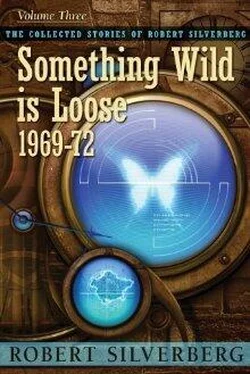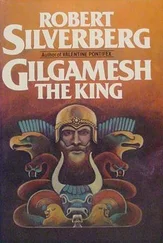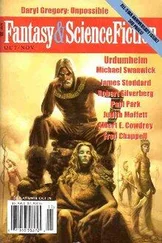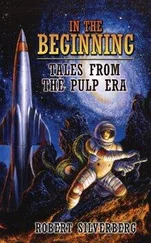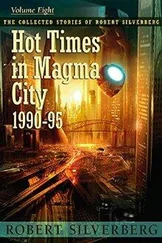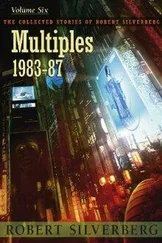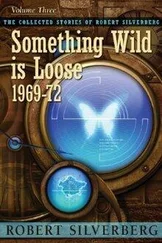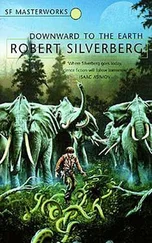Robert Silverberg - Caught in the Organ Draft
Здесь есть возможность читать онлайн «Robert Silverberg - Caught in the Organ Draft» весь текст электронной книги совершенно бесплатно (целиком полную версию без сокращений). В некоторых случаях можно слушать аудио, скачать через торрент в формате fb2 и присутствует краткое содержание. Год выпуска: 2012, ISBN: 2012, Издательство: Subterranean Press, Жанр: Фантастика и фэнтези, на английском языке. Описание произведения, (предисловие) а так же отзывы посетителей доступны на портале библиотеки ЛибКат.
- Название:Caught in the Organ Draft
- Автор:
- Издательство:Subterranean Press
- Жанр:
- Год:2012
- ISBN:978-1-59606-509-3
- Рейтинг книги:4 / 5. Голосов: 1
-
Избранное:Добавить в избранное
- Отзывы:
-
Ваша оценка:
- 80
- 1
- 2
- 3
- 4
- 5
Caught in the Organ Draft: краткое содержание, описание и аннотация
Предлагаем к чтению аннотацию, описание, краткое содержание или предисловие (зависит от того, что написал сам автор книги «Caught in the Organ Draft»). Если вы не нашли необходимую информацию о книге — напишите в комментариях, мы постараемся отыскать её.
Caught in the Organ Draft — читать онлайн бесплатно полную книгу (весь текст) целиком
Ниже представлен текст книги, разбитый по страницам. Система сохранения места последней прочитанной страницы, позволяет с удобством читать онлайн бесплатно книгу «Caught in the Organ Draft», без необходимости каждый раз заново искать на чём Вы остановились. Поставьте закладку, и сможете в любой момент перейти на страницу, на которой закончили чтение.
Интервал:
Закладка:
If your number is called you become exempt from military service, and they credit you with a special $750 tax deduction every year. Big deal.
Another thing they’re very proud of is the program of voluntary donation of unpaired organs. This has nothing to do with the draft, which—thus far, at least—requisitions only paired organs, organs that can be spared without loss of life. For the last twelve years it’s been possible to walk into any hospital in the United States and sign a simple release form allowing the surgeons to slice you up. Eyes, lungs, heart, intestines, pancreas, liver, anything, you give it all to them. This process used to be known as suicide in a simpler era and it was socially disapproved of, especially in times of labor shortages. Now we have a labor surplus, because even though our population growth has been fairly slow since the middle of the century, the growth of labor-eliminating mechanical devices and processes has been quite rapid, even exponential. Therefore, to volunteer for this kind of total donation is considered a deed of the highest social utility, removing as it does a healthy young body from the overcrowded labor force and at the same time providing some elder statesman with the assurance that the supply of vital organs will not unduly diminish. Of course you have to be crazy to volunteer, but there’s never been any shortage of lunatics in our society.
If you’re not drafted by the age of twenty-one, through some lucky fluke, you’re safe. And a few of us do slip through the net, I’m told. So far there are more of us in the total draft pool than there are patients in need of transplants. But the ratios are changing rapidly. The draft legislation is still relatively new. Before long they’ll have drained the pool of eligible draftees, and then what? Birth rates nowadays are low; the supply of potential draftees is finite. But death rates are even lower; the demand for organs is essentially infinite. I can give you only one of my kidneys, if I am to survive; but you, as you live on and on, may require more than one kidney transplant. Some recipients may need five or six sets of kidneys or lungs before they finally get beyond hope of repair at age 170 or so. As those who’ve given organs come to requisition organs later on in life, the pressure on the under-21 group will get even greater. Those in need of transplants will come to outnumber those who can donate organs, and everybody in the pool will get clipped. And then? Well, they could lower the draft age to 17 or 16 or even 14. But even that’s only a short-term solution. Sooner or later, there won’t be enough spare organs to go around.
Will I stay? Will I flee? Will I go to court? Time’s running out. My call is sure to come up in another few weeks. I feel a tickling sensation in my back, now and then, as though somebody’s quietly sawing at my kidneys.
Cannibalism. At Chou-kou-tien, Dragon Bone Hill, twenty-five miles south-west of Peking, paleontologists excavating a cave early in the twentieth century discovered the fossil skulls of Peking Man, Pithecanthropus pekinensis. The skulls had been broken away at the base, which led Franz Weidenreich, the director of the Dragon Bone Hill digs, to speculate that Peking Man was a cannibal who had killed his own kind, extracted the brains of his victims through openings in the base of their skulls, cooked and feasted on the cerebral meat—there were hearths and fragments of charcoal at the site—and left the skulls behind in the cave as trophies. To eat your enemy’s flesh: to absorb his skills, his strengths, his knowledge, his achievements, his virtues. It took mankind five hundred thousand years to struggle upward from cannibalism. But we never lost the old craving, did we? There’s still easy comfort to gain by devouring those who are younger, stronger, more agile than you. We’ve improved the techniques, is all. And so now they eat us raw, the old ones, they gobble us up, organ by throbbing organ. Is that really an improvement? At least Peking Man cooked his meat.
Our brave new society, where all share equally in the triumphs of medicine, and the deserving senior citizens need not feel that their merits and prestige will be rewarded only by a cold grave—we sing its praises all the time. How pleased everyone is about the organ draft! Except, of course, a few disgruntled draftees.
The ticklish question of priorities. Who gets the stockpiled organs? They have an elaborate system by which hierarchies are defined. Supposedly a big computer drew it up, thus assuring absolute godlike impartiality. You earn salvation through good works: accomplishments in career and benevolence in daily life win you points that nudge you up the ladder until you reach one of the high-priority classifications, 4-G or better. No doubt the classification system is impartial and is administered justly. But is it rational? Whose needs does it serve? In 1943, during World War II, there was a shortage of the newly discovered drug penicillin among the American military forces in North Africa. Two groups of soldiers were most in need of its bene-fits: those who were suffering from infected battle wounds and those who had contracted venereal disease. A junior medical officer, working from self-evident moral principles, ruled that the wounded heroes were more deserving of treatment than the self-indulgent syphilitics. He was overruled by the medical officer in charge, who observed that the VD cases could be restored to active duty more quickly, if treated; besides, if they remained untreated they served as vectors of further infection. Therefore he gave them the penicillin and left the wounded groaning on their beds of pain. The logic of the battlefield, incontrovertible, unassailable.
The great chain of life. Little creatures in the plankton are eaten by larger ones, and the greater plankton falls prey to little fishes, and little fishes to bigger fishes, and so on up to the tuna and the dolphin and the shark. I eat the flesh of the tuna and I thrive and flourish and grow fat, and store up energy in my vital organs. And am eaten in turn by the shriveled wizened seniors. All life is linked. I see my destiny.
In the early days, rejection of the transplanted organ was the big problem. Such a waste! The body failed to distinguish between a beneficial though alien organ and an intrusive, hostile microorganism. The mechanism known as the immune response was mobilized to drive out the invader. At the point of invasion enzymes came into play, a brush-fire war designed to rip down and dissolve the foreign substances. White corpuscles poured in via the circulatory system, vigilant phagocytes on the march. Through the lymphatic network carne antibodies, high-powered protein missiles. Before any technology of organ grafts could be developed, methods had to be devised to suppress the immune response. Drugs, radiation treatment, metabolic shock—one way or another, the organ-rejection problem was long ago conquered. I can’t conquer my draft-rejection problem. Aged and rapacious legislators, I reject you and your legislation.
My call notice came today. They’ll need one of my kidneys. The usual request. “You’re lucky,” somebody said at lunchtime. “They might have wanted a lung.”
Kate and I walk into the green glistening hills and stand among the blossoming oleanders and corianders and frangipani and whatever. How good it is to be alive, to breathe this fragrance, to show our bodies to the bright sun! Her skin is tawny and glowing. Her beauty makes me weep. She will not be spared. None of us will be spared. I go first, then she, or is it she ahead of me? Where will they make the incision? Here, on her smooth rounded back? Here, on the flat taut belly? I can see the high priest standing over the altar. At the first blaze of dawn his shadow falls across her. The obsidian knife that is clutched in his upraised hand has a terrible fiery sparkle. The choir offers up a discordant hymn to the god of blood. The knife descends.
Читать дальшеИнтервал:
Закладка:
Похожие книги на «Caught in the Organ Draft»
Представляем Вашему вниманию похожие книги на «Caught in the Organ Draft» списком для выбора. Мы отобрали схожую по названию и смыслу литературу в надежде предоставить читателям больше вариантов отыскать новые, интересные, ещё непрочитанные произведения.
Обсуждение, отзывы о книге «Caught in the Organ Draft» и просто собственные мнения читателей. Оставьте ваши комментарии, напишите, что Вы думаете о произведении, его смысле или главных героях. Укажите что конкретно понравилось, а что нет, и почему Вы так считаете.
